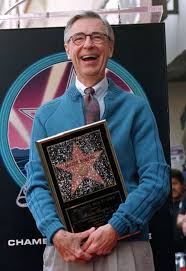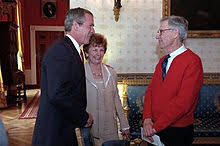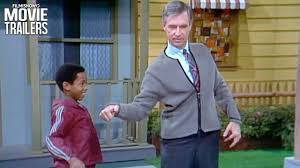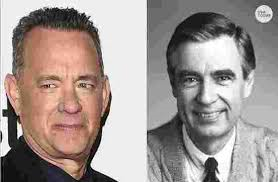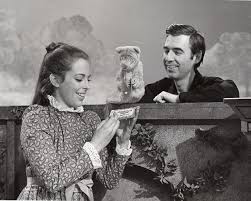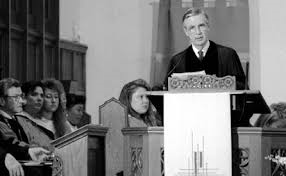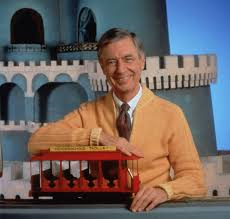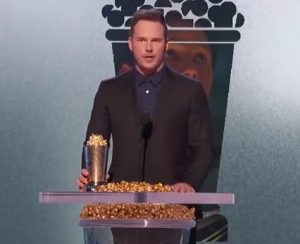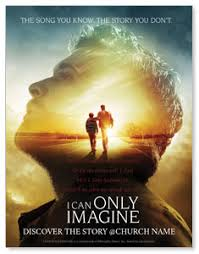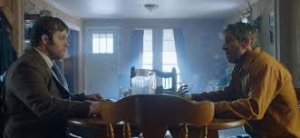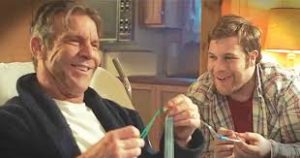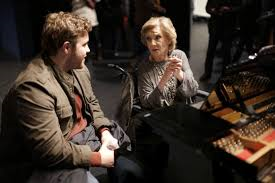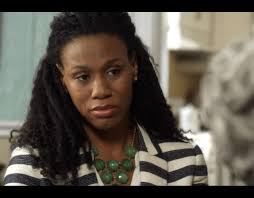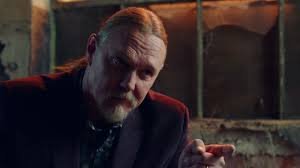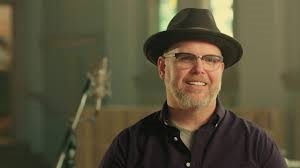AUDIO PODCAST OPTION FOR MY ARTICLE: “WHAT TO WATCH WHILE WEATHERING THE WUHAN”
Audio PlayerBEFORE WE START – GO WASH YOUR HANDS!!!
Then – I offer you two thoughts.
#1 Whenever faced with an anxiety provoking situation I ask myself: What’s the worse thing that could happen? The answer usually does not warrant my initial visceral knee jerk to whatever the problem at hand is, and it makes me realize I’m overreacting. In short – I tend to be a worry wart and freak out if I let my emotions get the better of me.
#2 Disaster movies are great fun for a number of reasons. (READ Cataclysm as Marital Therapy). But the most relevant reason for this article is: perspective.  Having to grit your teeth through another boring meeting at work seems like a paid holiday if you remember you don’t have genocidal aliens hovering in mile wide spaceships over your building waiting for the right moment to incinerate you (“Time’s up” Independence Day).
Having to grit your teeth through another boring meeting at work seems like a paid holiday if you remember you don’t have genocidal aliens hovering in mile wide spaceships over your building waiting for the right moment to incinerate you (“Time’s up” Independence Day).  Dealing with a flat tire isn’t so bad when you note you can do it while making all the noise you want without fear of attracting killer monsters (A Quiet Place).
Dealing with a flat tire isn’t so bad when you note you can do it while making all the noise you want without fear of attracting killer monsters (A Quiet Place).  Watching a disaster movie can help one embrace the philosophy: “I felt sorry for myself because I had no shoes until I met a man who had no feet.”
Watching a disaster movie can help one embrace the philosophy: “I felt sorry for myself because I had no shoes until I met a man who had no feet.”
So given these two thoughts and while we’re all being denied: church services, sporting events, movie theaters, parties, festivals, and hugs, I give you:
FOUR MOVIES TO WATCH WHILE WILING AWAY THE WEEKS WAITING TO WEATHER THE WUHAN
THE ANDROMEDA STRAIN (1971)
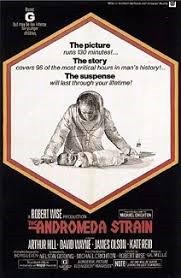 One of my all time favorites. Understated and steeped in extrapolated current science fact, the story, based on the book by Michael Crichton, revolves around, not action heroes, but scientists at the top of their fields who tackle an unknown disease which turns blood to powder in moments. Arthur Hill is Dr. Jeremy Stone, expert bacteriologist and government attache who knows of certain hidden agendas. David Wayne is Charles Dutton, pragmatic and old school pathologist who always reminded me of Dr. McCoy. Kate Reid is Ruth Leavitt, curmudgeonly microbiologist with a secret that could endanger the team’s progress. James Olson is James Hall, slightly geeky surgeon, who you could easily believe spent a lot of his teen years playing Dungeons and Dragons.
One of my all time favorites. Understated and steeped in extrapolated current science fact, the story, based on the book by Michael Crichton, revolves around, not action heroes, but scientists at the top of their fields who tackle an unknown disease which turns blood to powder in moments. Arthur Hill is Dr. Jeremy Stone, expert bacteriologist and government attache who knows of certain hidden agendas. David Wayne is Charles Dutton, pragmatic and old school pathologist who always reminded me of Dr. McCoy. Kate Reid is Ruth Leavitt, curmudgeonly microbiologist with a secret that could endanger the team’s progress. James Olson is James Hall, slightly geeky surgeon, who you could easily believe spent a lot of his teen years playing Dungeons and Dragons. 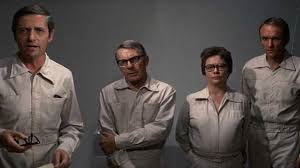 These people were no one’s idea of Avengers but worked as a team against time and an extraterrestrial virus which could cause global cataclysm.
These people were no one’s idea of Avengers but worked as a team against time and an extraterrestrial virus which could cause global cataclysm.
 Compared to The Andromeda Strain, the Wuhan is a wimp.
Compared to The Andromeda Strain, the Wuhan is a wimp.
CONTAGION (2011)
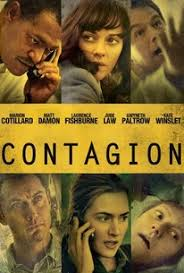 Talk about jumping off today’s headlines! Contagion is a movie by Steven Soderburgh whose structure is much like Paul Haggis’ Crash! with multiple storylines woven, like a crocheted serviette, around a central issue which come together to form a whole picture.
Talk about jumping off today’s headlines! Contagion is a movie by Steven Soderburgh whose structure is much like Paul Haggis’ Crash! with multiple storylines woven, like a crocheted serviette, around a central issue which come together to form a whole picture.  This movie is chock a block with familiar faces: Matt Damon (Bourne “fill in blank with a variety of nouns”, Good Will Hunting), Kate Winslet (Titanic, Hamlet), Gwenyth Paltrow (in so many Marvel movies with Robert Downey, Jr.’s Iron Man they finally broke down and gave her her own suit, Sliding Doors), Elliot Gould (M*A*S*H, Oceans’ 11, 12, 13, and 8), Jude Law (Fantastic Beasts, Captain Marvel), Laurence Fishburne (Othello, Matrix), Marion Cottillard (Nine, MacBeth), Bryan Cranston (Breaking Bad, Argo), Chin Han (Dark Knight, 2012).
This movie is chock a block with familiar faces: Matt Damon (Bourne “fill in blank with a variety of nouns”, Good Will Hunting), Kate Winslet (Titanic, Hamlet), Gwenyth Paltrow (in so many Marvel movies with Robert Downey, Jr.’s Iron Man they finally broke down and gave her her own suit, Sliding Doors), Elliot Gould (M*A*S*H, Oceans’ 11, 12, 13, and 8), Jude Law (Fantastic Beasts, Captain Marvel), Laurence Fishburne (Othello, Matrix), Marion Cottillard (Nine, MacBeth), Bryan Cranston (Breaking Bad, Argo), Chin Han (Dark Knight, 2012).
Paltrow is patient zero of a pandemic which has jumped animal DNA from bat to human to become a brain eating, lung congester which kills pretty much every victim we see within 2 days of showing the first flu-like symptoms.
Compared to the bug in Contagion, the Wuhan is a wussy. 
OUTBREAK (1995 )
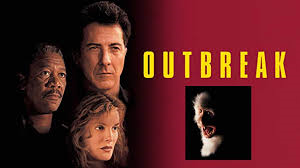 In one of the more formulaic thrillers, we have: the legendary Dustin Hoffman of MANY classic movies (Midnight Cowboy, Little Big Man, Finding Neverland, Tootsie, Rain Man, The Graduate, Marathon Man, Lenny, Papillon, Hero … *whew*), Rene Russo (Lethal Weapon), the disgraced Kevin Spacey, Cuba “Show me the money!” Gooding, Jr. (Jerry Maguire),
In one of the more formulaic thrillers, we have: the legendary Dustin Hoffman of MANY classic movies (Midnight Cowboy, Little Big Man, Finding Neverland, Tootsie, Rain Man, The Graduate, Marathon Man, Lenny, Papillon, Hero … *whew*), Rene Russo (Lethal Weapon), the disgraced Kevin Spacey, Cuba “Show me the money!” Gooding, Jr. (Jerry Maguire), 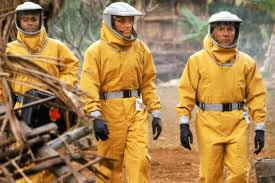 Donald Sutherland (with a list of 194 credits he’s been in everything from the slapstick Start the Revolution Without Me to Pride and Prejudice), and the ubiquitous Morgan Freeman (Batman, Shawshank Redemption, Bruce Almighty) all struggle to contain an Ebola-like virus which originated in an African jungle, but, through a series of mishaps, infects the town of Cedar Creek, CA. Our intrepid heroes are hampered in their effort to find a cure by forces which want to retrieve the virus so they can turn it into a bioweapon and incinerate the infected town, ostensibly to prevent its spread, but in truth to hide their nefarious plans.
Donald Sutherland (with a list of 194 credits he’s been in everything from the slapstick Start the Revolution Without Me to Pride and Prejudice), and the ubiquitous Morgan Freeman (Batman, Shawshank Redemption, Bruce Almighty) all struggle to contain an Ebola-like virus which originated in an African jungle, but, through a series of mishaps, infects the town of Cedar Creek, CA. Our intrepid heroes are hampered in their effort to find a cure by forces which want to retrieve the virus so they can turn it into a bioweapon and incinerate the infected town, ostensibly to prevent its spread, but in truth to hide their nefarious plans.
Compared to the buggie in Outbreak, the Wuhan is a weakling, with the added fillip that no one is planning to nuke any towns to get rid of it.
THE STAND (1994)
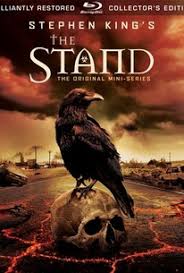 Done as a miniseries, the book was far better BUT, like Contagion, there is a legion of distinguished standards of both large and small screens as well as theater who ensemble their way through this 6 hour and one minute marathon. Look them up on us.imdb.com and enjoy some of these classic actors’ iconic roles: Gary Sinise (Forrest Gump, Apollo 13), Molly Ringwald (The Breakfast Club, Pretty in Pink), Jamey Sheridan (Sully), Lara San Giacomo (Pretty Woman), the multi-talented stage and film legend Ruby Dee (The Jackie Robinson Story, Raisin in the Sun), another legend Ossie Davis (one of the kings of 1950’s and 1960’s American TV shows from Car 54 Where are You? to Night Gallery, plus films ranging from Do the Right Thing to Grumpy Old Men), Matt (Max Headroom) Frewer, Rob Lowe (The Orville, Saint Elmo’s Fire), Ray (My Favorite Martian) Walston, Ed Harris (The Rock, A Beautiful Mind), Kathy Bates (The Blind Side, Richard Jewell).
Done as a miniseries, the book was far better BUT, like Contagion, there is a legion of distinguished standards of both large and small screens as well as theater who ensemble their way through this 6 hour and one minute marathon. Look them up on us.imdb.com and enjoy some of these classic actors’ iconic roles: Gary Sinise (Forrest Gump, Apollo 13), Molly Ringwald (The Breakfast Club, Pretty in Pink), Jamey Sheridan (Sully), Lara San Giacomo (Pretty Woman), the multi-talented stage and film legend Ruby Dee (The Jackie Robinson Story, Raisin in the Sun), another legend Ossie Davis (one of the kings of 1950’s and 1960’s American TV shows from Car 54 Where are You? to Night Gallery, plus films ranging from Do the Right Thing to Grumpy Old Men), Matt (Max Headroom) Frewer, Rob Lowe (The Orville, Saint Elmo’s Fire), Ray (My Favorite Martian) Walston, Ed Harris (The Rock, A Beautiful Mind), Kathy Bates (The Blind Side, Richard Jewell).
The Stand also has a unique twist – after the plague has swept through the world and humanity’s remnants are just starting to put their lives and a fledgling new civilization back together, God and the Devil begin a competition for their souls.
The source book, especially, presents a surprisingly complex and extensive examination of extreme medical phenomena, societal structures, theology, and the internal and external struggles every man faces in choosing between good and evil.
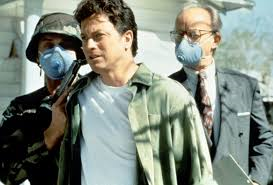 The miniseries begins with an Apocalypse level virus, nicknamed Captain Trips, which wipes out 999 out of every thousand people around the world. In the aftermath, the survivors become the unwilling soldiers in a battle between Hell, represented by Randall Flagg, who sets up shop, appropriately in Las Vegas, NV, and God, represented by Mother Abigail Freemantle, who leads her flock to Boulder, Colorado.
The miniseries begins with an Apocalypse level virus, nicknamed Captain Trips, which wipes out 999 out of every thousand people around the world. In the aftermath, the survivors become the unwilling soldiers in a battle between Hell, represented by Randall Flagg, who sets up shop, appropriately in Las Vegas, NV, and God, represented by Mother Abigail Freemantle, who leads her flock to Boulder, Colorado.
Although the acting is not of uniform quality, many of these veteran character performers, like Sinise, Dee and Davis, shine above the awkwardly truncated story and pedestrian technicals. The soundtrack, by the gifted and prolific Snuffy Walden, has a charming midwestern Americana feel.
The movie even 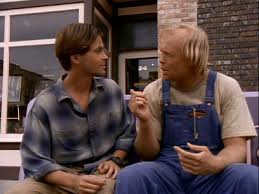 occasionally uses homages to classic literature such as Of Mice and Men.
occasionally uses homages to classic literature such as Of Mice and Men.
Compared to Captain Trips, not only is the Wuhan a walk in the park, it’s a stroll you can take without the incarnation of the Devil himself chasing you in cowboy boots.
So — while you’re quarantined with no: sports, festivals, parties, restaurants, wedding receptions, theater events, movie popcorn, concerts, church fairs, handshakes, confirmations, church services, communal bowls of M&Ms, bridge nights, dances, sci fi conventions, bake sales, open air markets, live opera, or hugs – turn out the lights, choose one of these cathartic gems, confront your worst fears and … count your blessings.
AND WHILE YOU’RE AT IT — GO WASH YOUR HANDS!









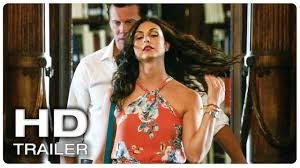

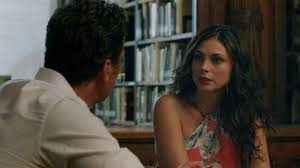
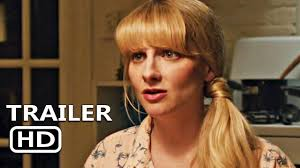

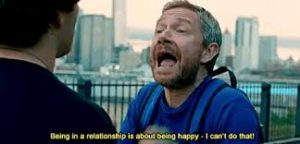
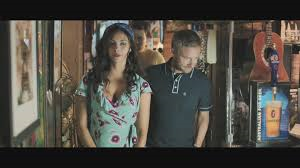

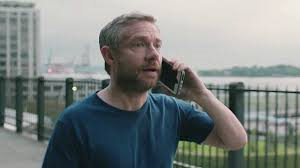
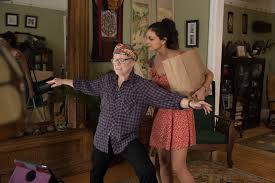
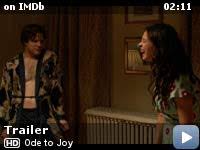



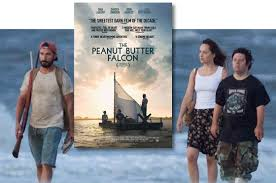


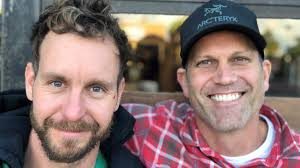
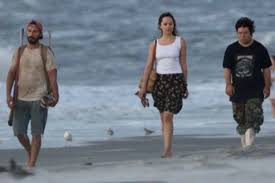




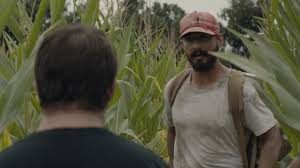
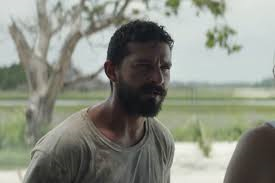
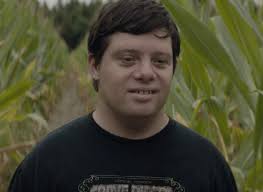

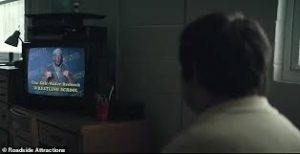

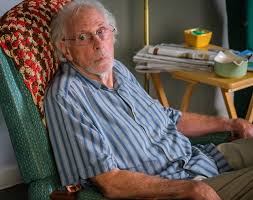
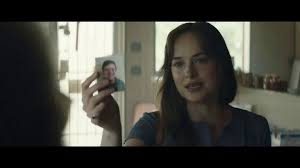
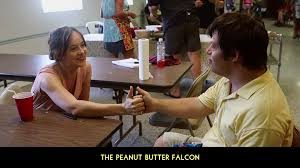
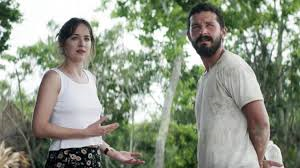

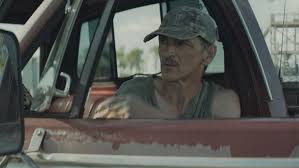

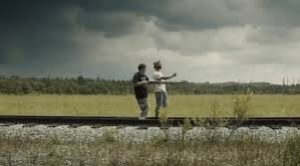


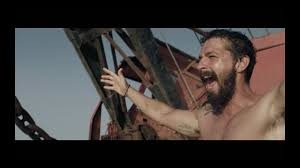
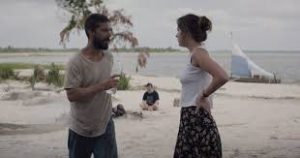
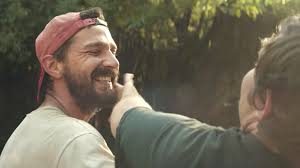


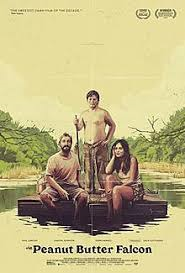
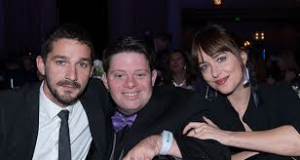

 And he took a woman named Abby Johnson, one of the youngest directors and Employee of the Year of a large Houston Planned Parent abattoir and converted her into one of the most passionate and resolute pro-life advocates in the world.
And he took a woman named Abby Johnson, one of the youngest directors and Employee of the Year of a large Houston Planned Parent abattoir and converted her into one of the most passionate and resolute pro-life advocates in the world.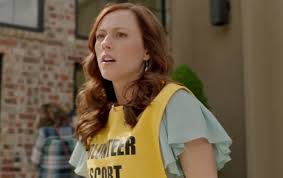 Planned Parenthood functionary, who self-deludes into believing she is protecting “women’s rights,” to the modern equivalent of the afore-referenced Saint Paul. The movie starts with the morning of the event which removes the “scales” from her eyes.
Planned Parenthood functionary, who self-deludes into believing she is protecting “women’s rights,” to the modern equivalent of the afore-referenced Saint Paul. The movie starts with the morning of the event which removes the “scales” from her eyes.  The title refers, not just to the pregnancies on which Planned Parenthood feeds, but the sudden and unexpected illumination of Abby’s soul.
The title refers, not just to the pregnancies on which Planned Parenthood feeds, but the sudden and unexpected illumination of Abby’s soul.
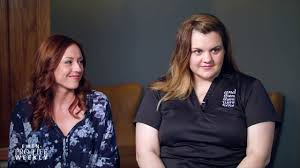
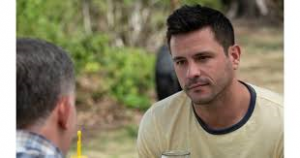
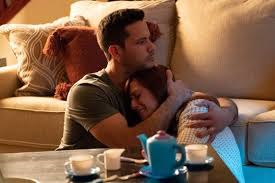 who is instrumental in her healing through God’s grace and his commitment to their marriage.
who is instrumental in her healing through God’s grace and his commitment to their marriage.  Jared Lotz plays Shawn Carney and Emma Le Roberts portrays Marilisa, his wife, who head up 40 Days for Life. Marilisa befriended Abby despite their diametrically opposed positions on abortion, as she and the other 40 Days members prayed outside the fence.
Jared Lotz plays Shawn Carney and Emma Le Roberts portrays Marilisa, his wife, who head up 40 Days for Life. Marilisa befriended Abby despite their diametrically opposed positions on abortion, as she and the other 40 Days members prayed outside the fence.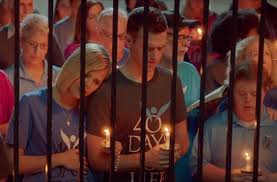 In reality, representatives from 40 Days were a constant presence, praying daily and for years, outside of Abby’s abortion mill, from the day Planned Parenthood broke ground on the property they bought under the false pretense of an assumed name, until the day they finally closed their doors over eight long years later.
In reality, representatives from 40 Days were a constant presence, praying daily and for years, outside of Abby’s abortion mill, from the day Planned Parenthood broke ground on the property they bought under the false pretense of an assumed name, until the day they finally closed their doors over eight long years later. Although “sanitized” by the “animated” nature of the ultrasound, it is, nonetheless, difficult to watch.
Although “sanitized” by the “animated” nature of the ultrasound, it is, nonetheless, difficult to watch.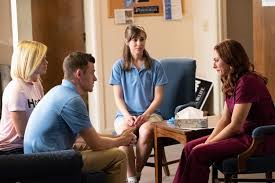 The writers/directors/producers Chuck Konzelman and Cary Solomon,
The writers/directors/producers Chuck Konzelman and Cary Solomon, 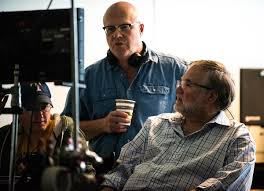
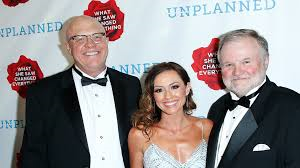

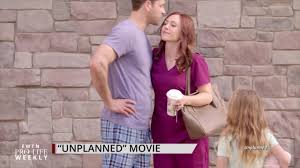 Abby and Doug’s love story for one; Abby’s steadfast pro-life parents, who prayed unceasingly for her conversion, were
Abby and Doug’s love story for one; Abby’s steadfast pro-life parents, who prayed unceasingly for her conversion, were


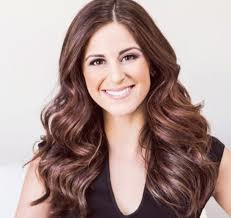




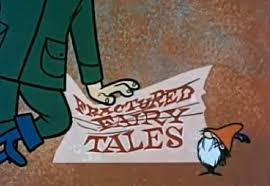
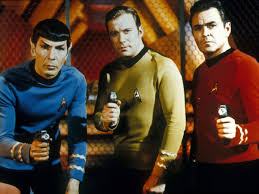
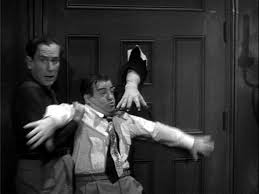
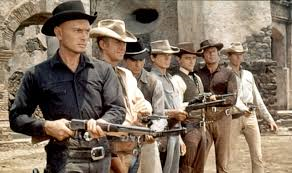
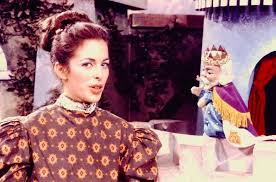

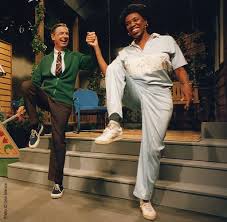

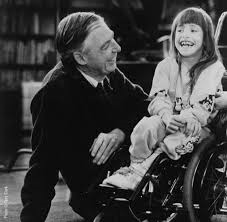

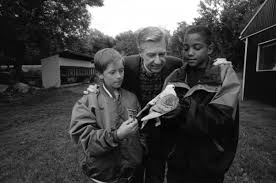
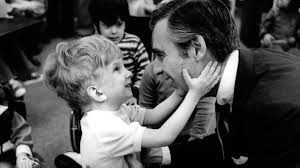
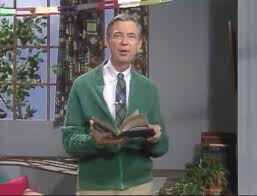
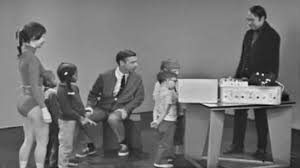
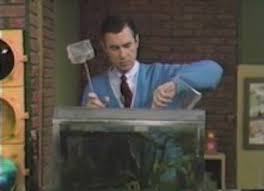
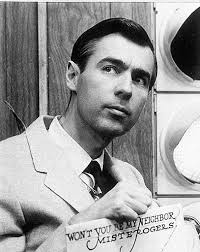
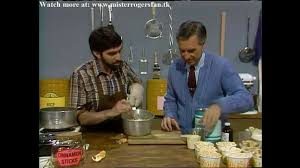
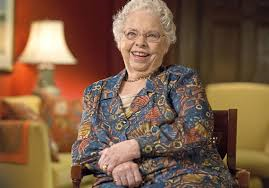
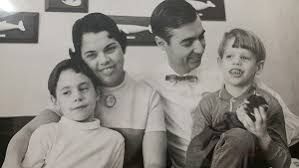
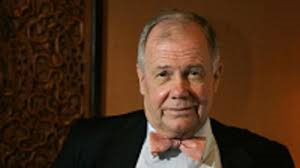
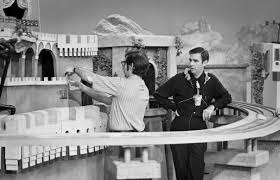
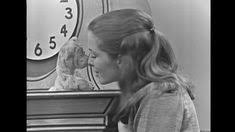
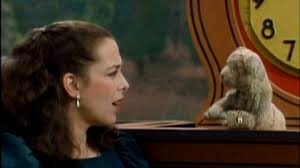
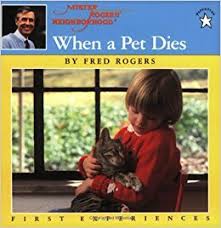
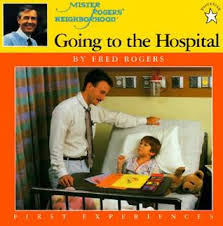
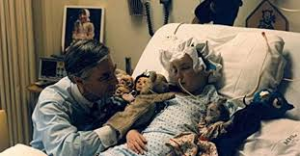
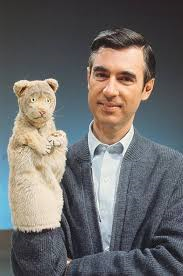
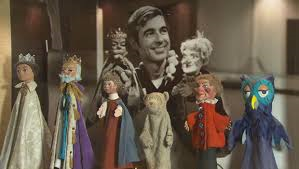
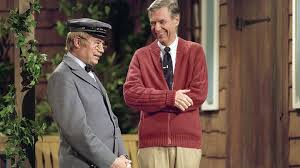

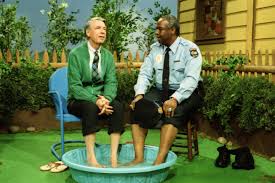

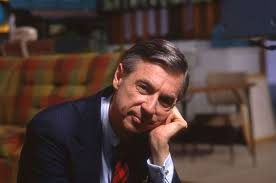
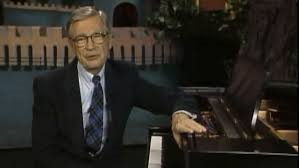
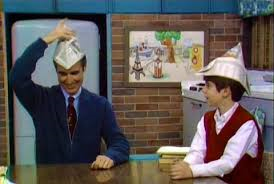
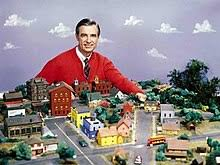
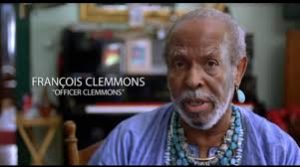
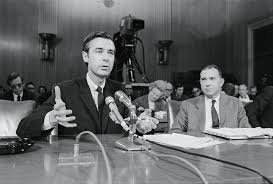
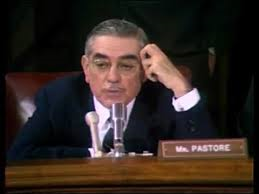
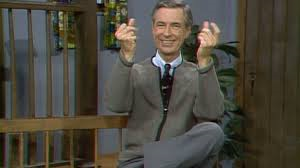
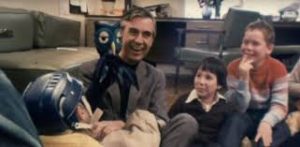
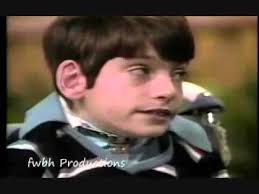
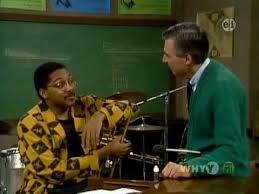
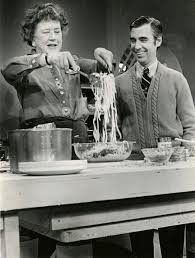
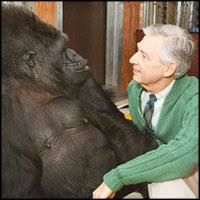
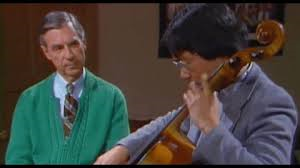



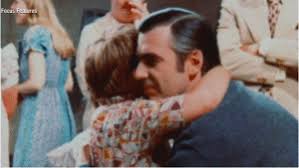
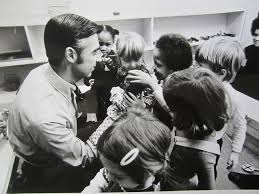
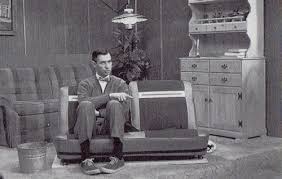 The picture of humility, his wife remembered how on his death bed he wondered if he would be accepted into Jesus' sheepfold.
The picture of humility, his wife remembered how on his death bed he wondered if he would be accepted into Jesus' sheepfold. 